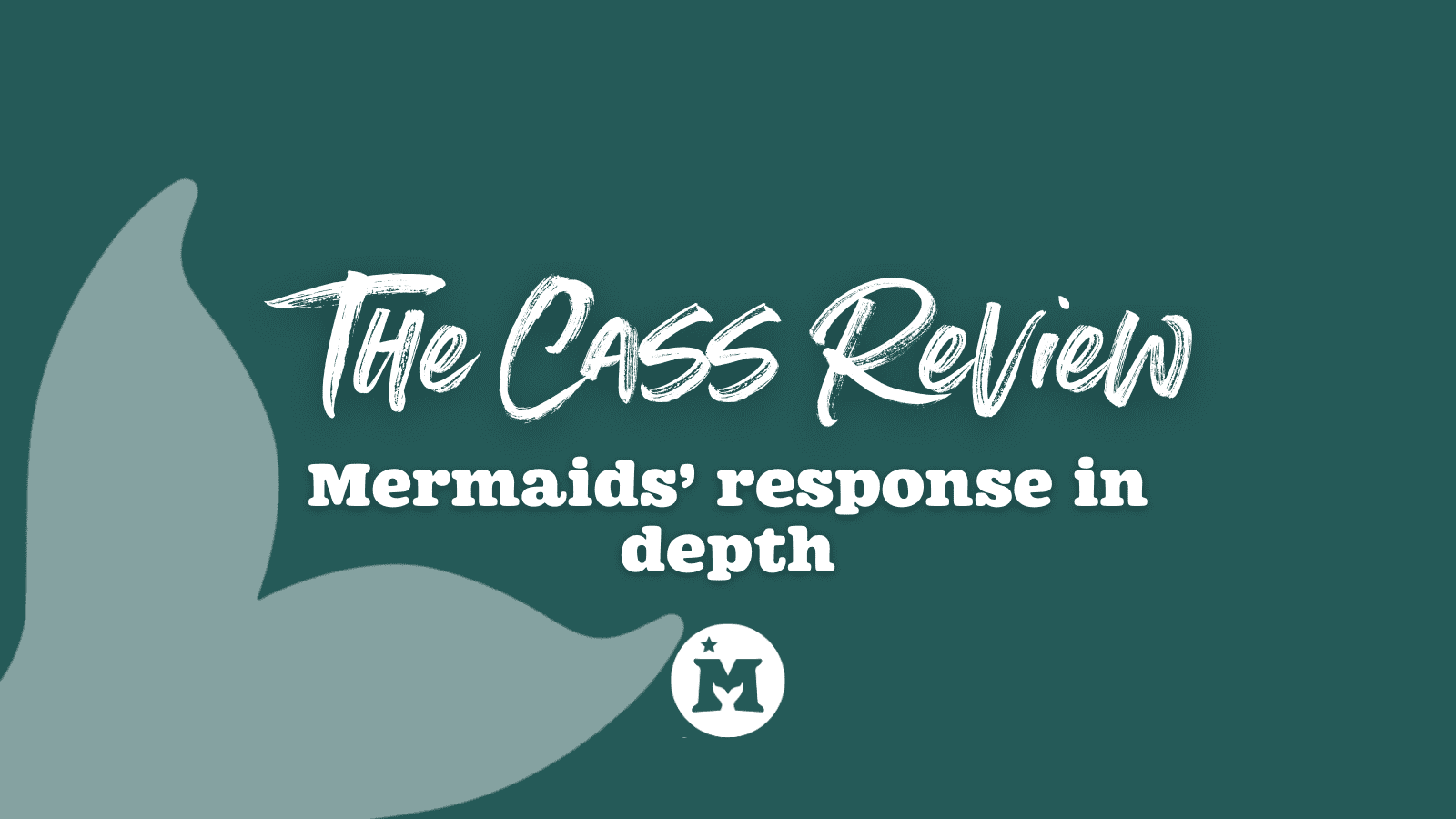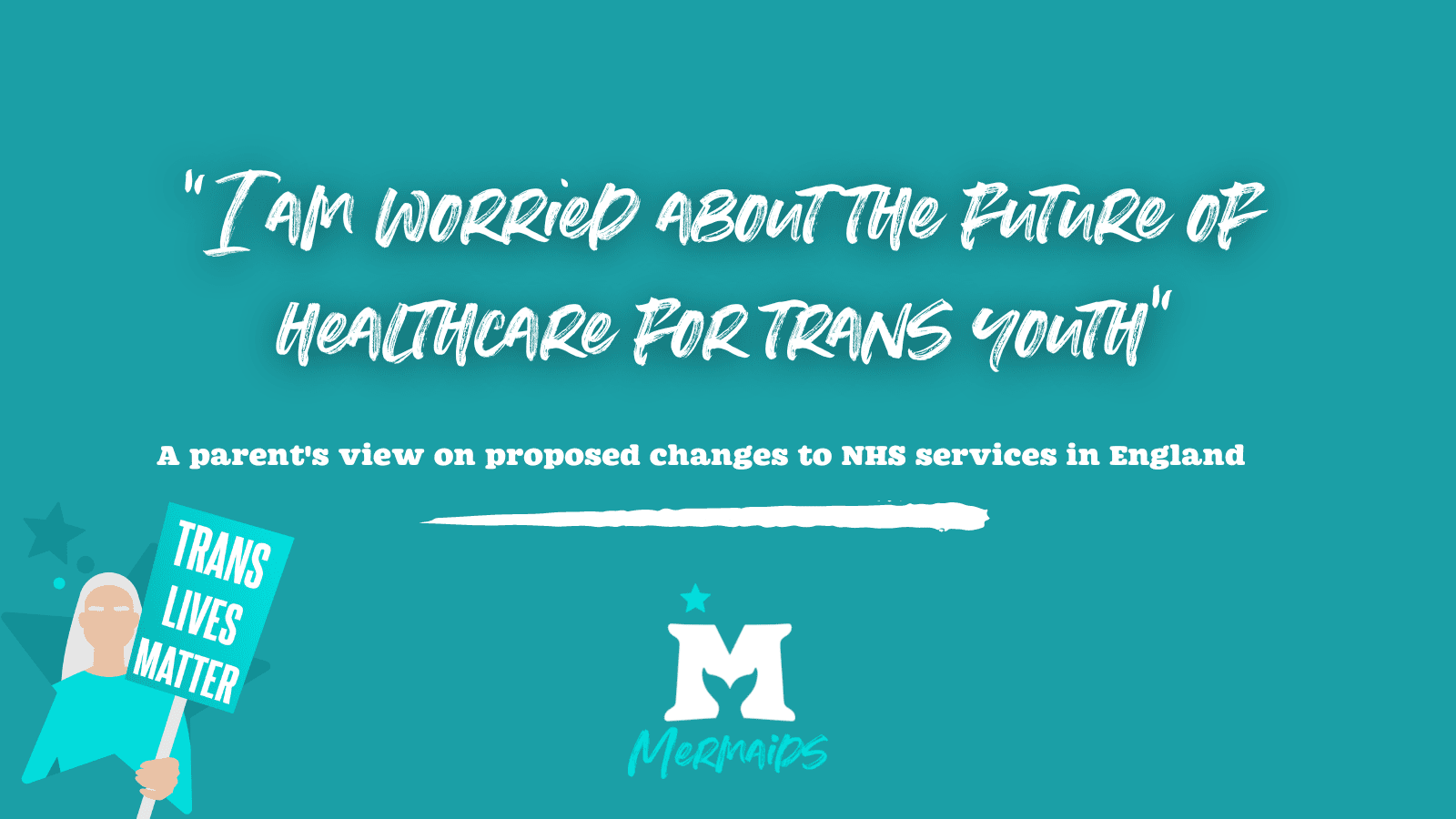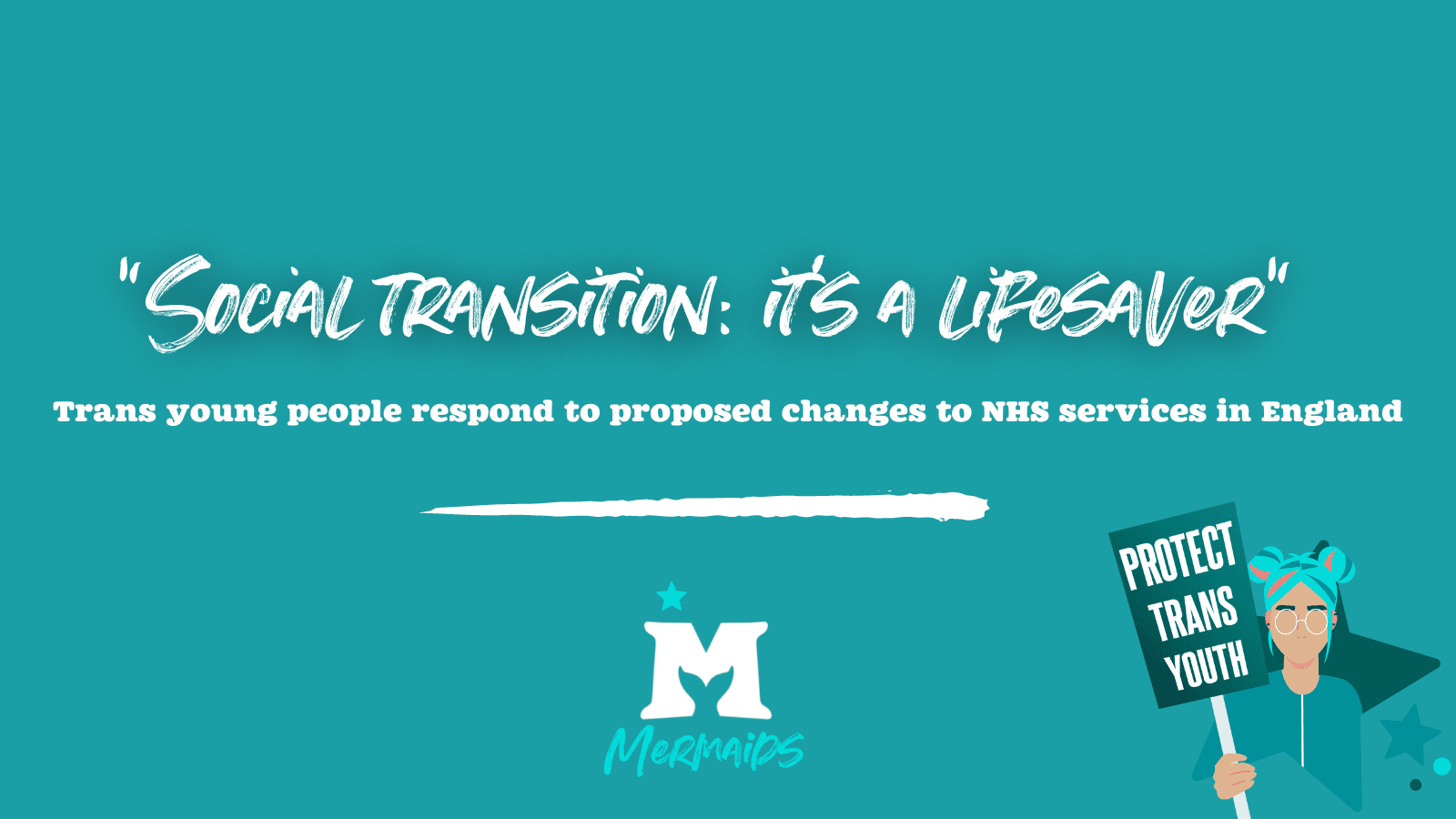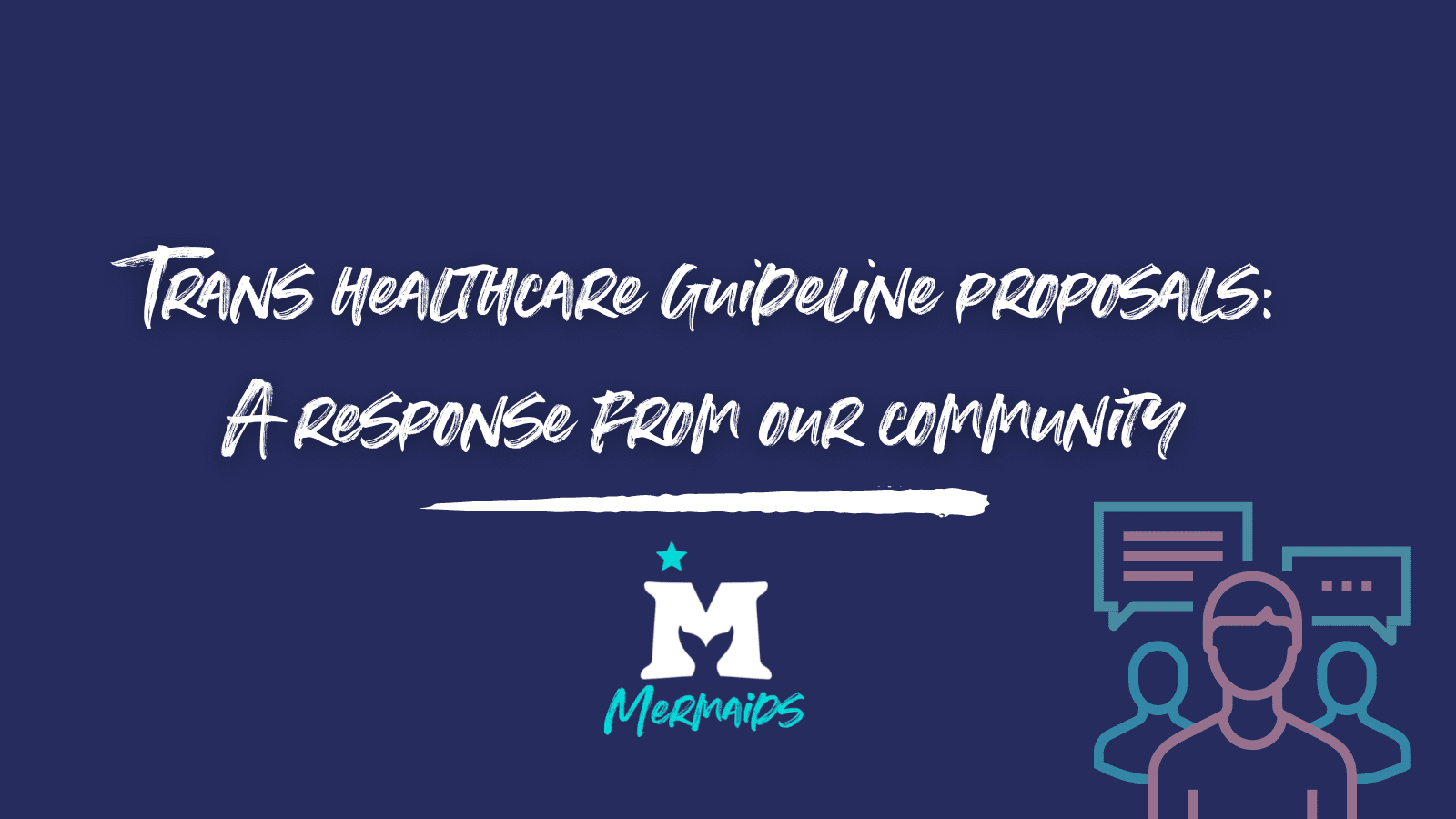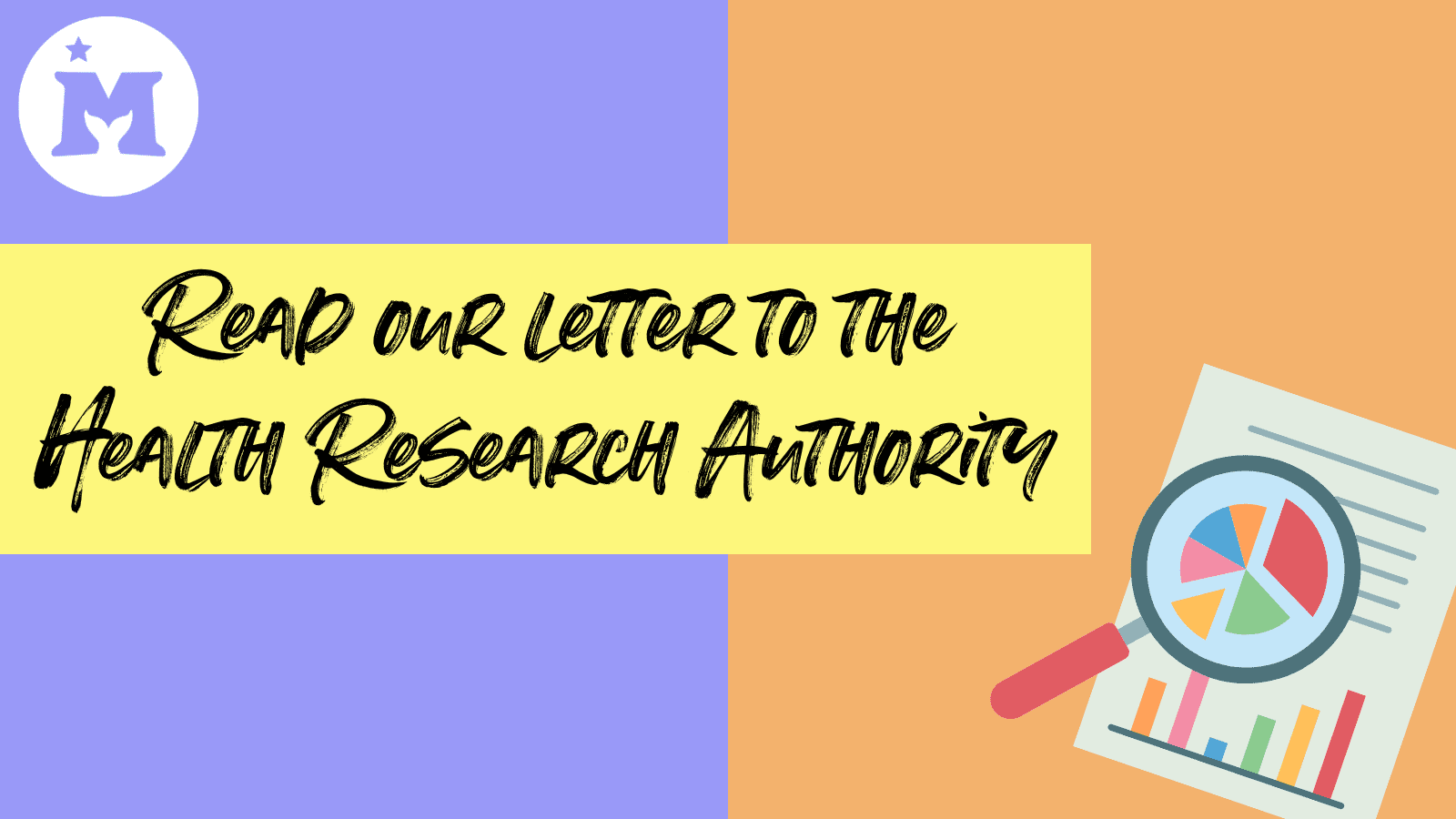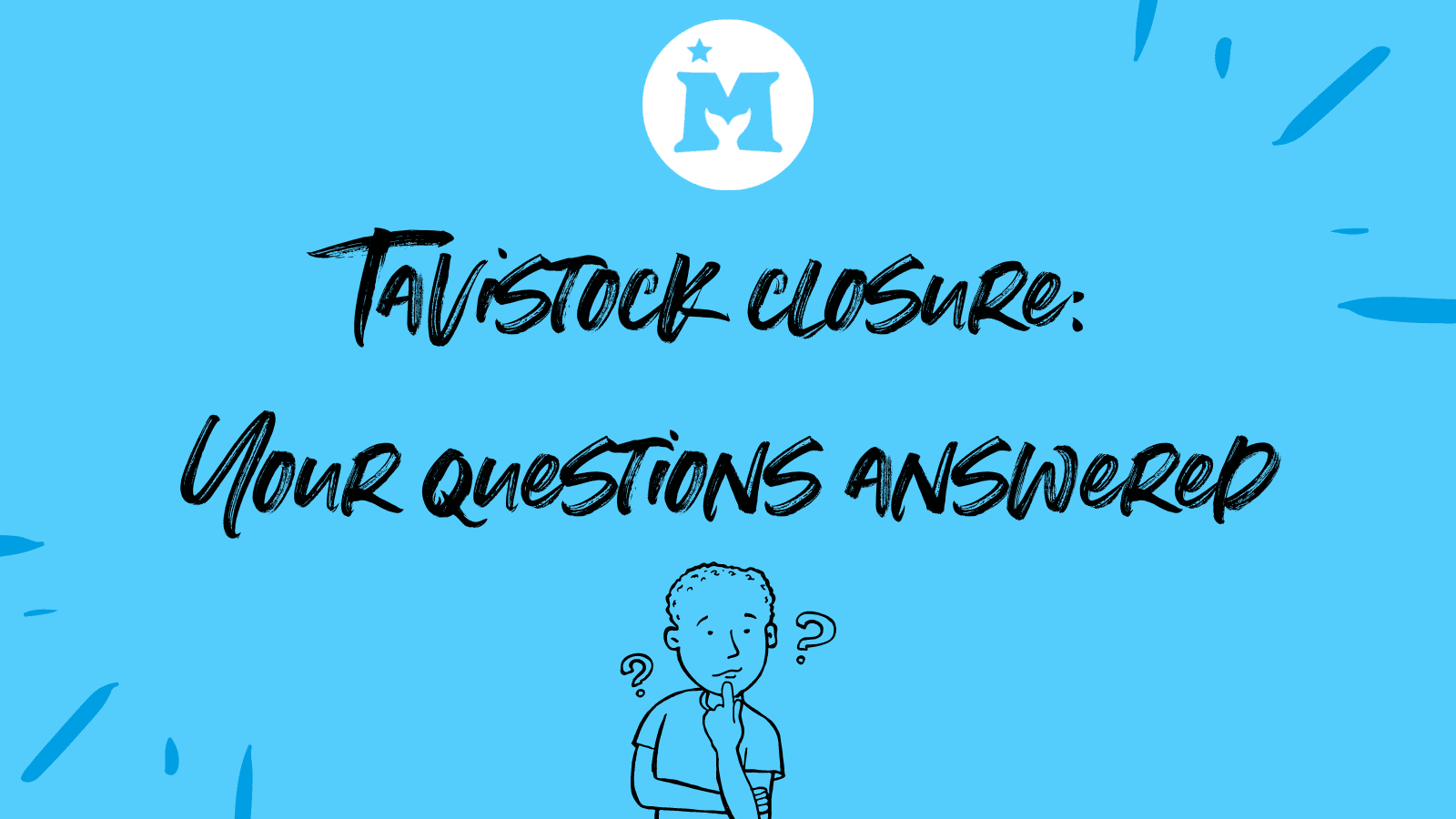Trans children, young people and their families have been faced with hateful narrative and misformation since the publication of The Cass Review on 10 April 2024.
Media organisations and elected representatives hostile to trans youth have sought to misrepresent the report’s findings and call into question the validity of their experiences, and we are deeply disappointed, although not surprised, that Dr Cass’ own calls for compassion and respect have been completely disregarded.
As a charity supporting trans youth and their families, our focus these past few weeks has been on reassuring those worried by the content of the report as well as the irresponsible way it is being interpreted.
Since publication, we’ve met with Dr Cass and the review team alongside other LGBT+ support organisations to share concerns we’ve been hearing from our community. You can read about the questions they answered at the Kite Trust.
Our analysis is focused on what children, young people and families need to see in response to the review, and on how this could be delivered.
Overall analysis
While we have significant concerns about many aspects of the report, it recognises the existence of trans children and young people and rightly acknowledges what they have been saying for years: NHS services are comprehensively failing them.
Young people we have spoken to are concerned about what they have read, including the desire to understand “why” young people are trans, and to place what feel like “limits” on gender expression, further pathologising and medicalising their identities. We share these concerns.
We are deeply frustrated with the lack of clarity throughout the report, which has enabled wilful misinterpretation and the spread of harmful misinformation. Clear and accessible language is vital, especially when services are operating in a context where there is significant hostility to and misconceptions about trans people, particularly in the media.
“I don’t experience minority stress from ‘lots of different opinions’ – I experience minority stress because there is open and vitriolic conversation about how we don’t understand ourselves or our bodies, that we don’t deserve to exist, that we’re somehow evil and perverted or manipulated by something evil and perverted.”
The Cass Review team appears to have heard community concerns and agreed to publish more information providing clarity on the most troubling and misrepresented aspects of their report.
Beyond this, it is critical that NHS England and the Department for Health and Social Care (DHSC) listen to trans children and young people, their families and the trusted adults in their lives in shaping services, and resist pressure from those using the Cass Review in bad faith to further restrict access to healthcare and limit trans young people’s freedoms.
Timely access to holistic, supportive care should be available close to home for all trans children and young people, including access to medical interventions such as puberty suppressing and cross gender hormones, and we will continue to campaign robustly for this.
We call on NHS England to provide urgent upfront investment in these services, as well as the infrastructure and workforce to address the significant backlog caused by years of underinvestment and politicisation of the lives of trans children and young people.
Key concerns
Social Transition
The Cass Review does not, as has been misrepresented in the press, recommend a blanket ban on social transition for any age group, and specifically recognises the rights and agency of young people to present how they choose. Dr Cass calls for early access to support for young children and their families so that they can be supported around decisions relating to social transition.
However, Dr Cass recognises that “there is no single definition of social transition” but then goes on to speak of “full” and “partial” social transition, without clarity.
As well as this lack of clarity, young people have told us that they are frustrated by the report’s desire to pinpoint a “cause” for trans young people to be open about who they are and are worried that it may be interpreted to limit social transition, particularly in schools.
“Why is there a failure to see that maybe just maybe if children socially transition and go onto medially transitioning it’s because they are trans!!!! And not because socially transitioning altered their development”
We have already seen this misrepresentation spoken in parliament, and we completely reject the words of Government ministers suggesting that being trans is anything other than a healthy and important way for young people to express themselves.
It is vital that both NHS England and the Department for Education consider the full recommendations of the Cass Report in the development of services and updated guidance relating to trans young people.
We will continue to advocate for supportive schools, where young people are able to express themselves authentically.
Puberty Suppressing and Gender Affirming Hormones
The report acknowledges the efficacy of puberty delaying treatment for some trans young people, while arguing that the evidence base is insufficient. The report also recognises that most young people receiving puberty suppressing treatment on the NHS aren’t doing so until it is too late for them to be effective (an average age of 15) as a result of long waiting lists and significant barriers to accessing care.
The report also calls for “extreme caution” in prescribing gender affirming hormones to 16 and 17 year olds, which has already led to a review of prescription policy for all over 16s announced by NHS England, and the convening of a new multi-disciplinary team to oversee prescriptions for 16-17 year olds. We believe this is a knee jerk reaction from NHSE which may delay access to care.
There are questions about the way in which existing research has been used, evaluated and in some cases excluded from the review’s consideration. Dr Cass has agreed to provide clarity on this.
We have significant concerns about mandatory participation in research as a condition of access to treatment, and the way in which this area of gender care has been politicised far more than any other.
We call on NHS England to reassure 16 and 17 year olds that their care will not be delayed, to speed up work on research trials, and to ensure that this is done so transparently, ethically and in line with international best practice.
Services for Young Adults
Young people have told us that they are worried by suggestions in the media that Cass has recommended a block on transition until 25, particularly for neurodivergent young people.
The report recognises that there are huge gaps in support for young people due to long adult waiting lists and the end of youth services at 18.
We agree that no young person should be left without gender care at 18, and that there should be a seamless transition into adult services when it’s right for them. It’s also important that young adults who have been seen by children’s services are able to access the same care as their peers who first sought care as adults.
Instead of setting out what these services might look like, and committing to ensuring seamless support for young adults, NHS England immediately required adult services to cancel appointments for 17 year olds, many of whom have been waiting many years to access support. We call on NHS England to reverse this harmful decision and ensure support is offered to all 17 year olds who have been removed from children and young people’s waiting lists.
NHS England must rapidly reassure young people and families that access to adult services remains unaffected while they develop and appropriately fund seamless follow-through service.
Private Care
Free access to healthcare is a fundamental right. Due to the failure of the NHS to provide this to trans children and young people, many have been forced to access care outside of the NHS, at significant financial cost.
The review makes unclear recommendations about private and overseas care which may have implications for those using these services, both in their ability to access this care, and potentially accessing NHS services in the future.
We have heard from families where young people have been on NHS waiting lists for five or more years and have accessed private services both overseas and in the UK. They feel that the NHS has abandoned them, and that the Cass Report has provided NHS England and the DHSC with a blueprint to further restrict access to care for young people who have been failed by existing services.
Restricting access to these routes will likely result in people taking even more risky approaches, and reduce the likelihood that they will disclose this to supportive health professionals and trusted adults, increasing the physical, financial and safeguarding risks they face.
The NHS and DHSC must ensure a non-punitive, harm reduction approach for all young people in these situations. This includes not applying restrictions to accessing NHS care and support for those who have used other forms of care and ensuring that primary and secondary care providers are equipped to provide harm reduction measures, such as monitoring.
Neurodivergence
The Cass Report acknowledges that neurodivergence and mental health conditions are common among trans young people, and that these young people require a holistic approach to ensure that all their needs are supported.
However, there’s no clarity about why all young people should be screened for these conditions, what impact this will have on access to specialist gender care, or on waiting times.
We are also concerned that the report implies that neurodivergent young people who are autistic are less trustworthy in articulating their trans identity than their neurotypical counterparts or that this capacity is limited until their “early 20s”.
NHS England must clearly articulate that neurodivergence, disability or other health conditions will not impact on access to gender affirming care, including through longer waits caused by lengthy waiting lists for full assessment for other conditions. This includes ensuring clarity around the rights and agency of neurodivergent young people in line with Gillick competency.
What next?
We’re talking with colleagues across the LGBT+ and youth sectors about the actions we’re going to take to ensure timely, holistic and supportive healthcare for trans young people, and will keep you updated on our next steps.
We’ll be talking more about what the Cass Review could mean for trans youth on our Instagram next week. In the meantime, to keep up to date with our healthcare campaign, join our mailing list and if you’d like to support our work, you can make a donation.


